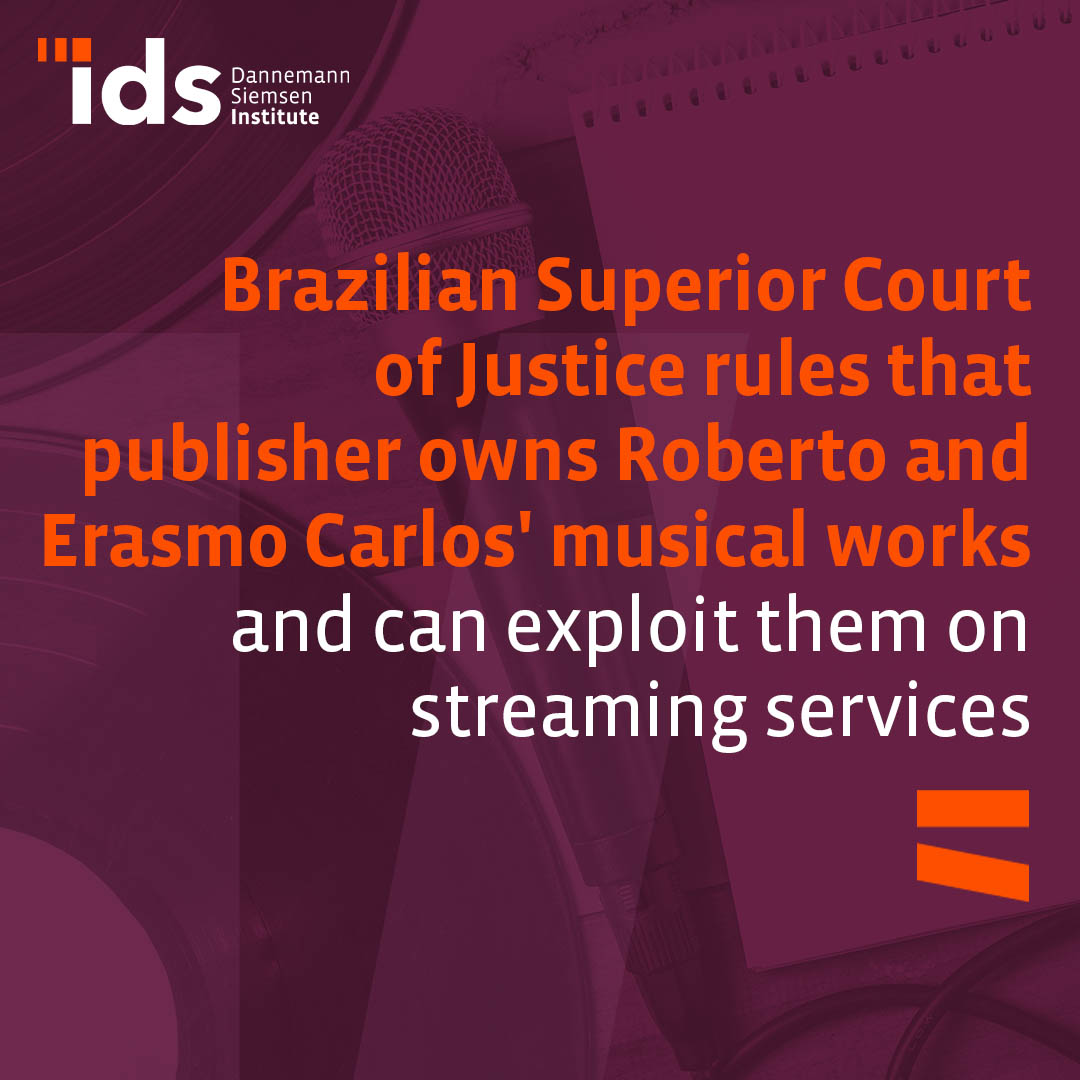21 de janeiro de 2025
Share
Brazilian Superior Court of Justice rules that publisher owns Roberto and Erasmo Carlos’ musical works and can exploit them on streaming services
In a recent ruling, the 3rd Panel of the Superior Court of Justice (STJ) unanimously held that the contracts signed between singers Roberto Carlos and Erasmo Carlos (represented by their estate) and Editora e Importadora Musical Fermata do Brasil Ltda. materialized the transfer of ownership and not only the edition of their musical works. The two musicians are very famous in Brazil. The lawsuit was filed by the artists to question the scope of the contracts signed in the 1960s and 1980s, which, according to them, did not expressly provide for the exploitation of the songs on digital platforms.
In the lawsuit, the plaintiffs argued that the contracts should be interpreted as publishing contracts and not full assignment of copyright, limiting the exploitation of the works to the physical format in force at the time. For its part, the publisher argued that the contracts entered into granted full assignment of the property rights, allowing exploitation in any medium, even if not foreseen at the time of signing.
In the judgment, the panel analyzed the legislation applicable at the time the contracts were signed, specifically the Civil Code of 1916 and the Copyright Law in force at the time. Thus, the decision first highlighted the difference between copyright assignment and publishing contracts. As it states, “while the former are characterized by implying the transfer of the author’s property rights (definitive or temporary, total or partial), the latter are those by which the contracting party (publisher) assumes the obligation to publish or cause to be published an artistic work, the main characteristic of which is their limited duration (either in terms of the time of validity or the number of editions that will be the subject of publication)”.
Thus, the judgment established that, in the case of the contract under discussion, “the transfer of copyright was carried out definitively, given that the assignment covered the entire period of legal protection of the works”. As a result, it was decided that “considering the will declared by the appellants when the contracts were signed to fully and definitively transfer the author’s property rights over their artistic works, it must be concluded that the agreements are characterized as assignment contracts, and not publishing contracts as postulated in the grounds for appeal”.
The decision also emphasized the principle of non-retroactivity, according to which contracts must be interpreted in accordance with the rules and technological context of the time when they were signed. In this sense, the STJ concluded that “the specific protection afforded to authors, contained in art. 49, V, of Law 9.610/98, was not present in the legal system prior to the enactment of this law, so that, due to the principle of the non-retroactivity of the law, it seems unfeasible to apply its provisions to contracts entered into before its enactment, as in this case. Thus, the use of the works transferred to the defendant in the streaming modality must be admitted.”
Finally, the court partially upheld the appeal filed by the publisher and ruled that “since there were no legal provisions in force at the time the instruments were entered into with a normative content similar to that provided for in art. 49, V, of Law No. 9,610 /1998 and there were no other restrictions on the freedom of the contracting parties to dispose of rights at the time the contracts were entered into, the exploitation of the works assigned by the assignee in the form of streaming use is possible”.
The decision can be accessed via the link: Recurso especial nº 2029976 – SP
Note: For quick release, this English version is provided by automated translation without human review.
